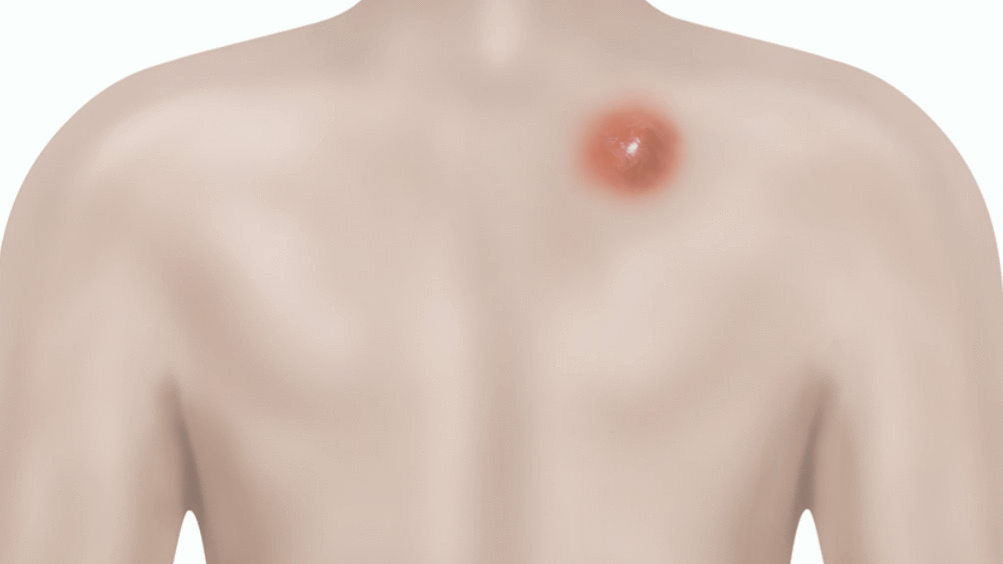Free delivery nationwide for orders above ₱800
+63(998)858-3957 Mon-Fr 9a.m.-6p.m.
+63(906)084-8874 Mon-Fr 9a.m.-6p.m.
Email contact@medsgo.ph
Address
Philippines, Mandaluyong, Unit B, LN Bldg., 738 Shaw Blvd., Greenfield District, Highway Hills
Cure for Boils (Pigsa)
09/24/2024

Curing Boils (Pigsa): Effective Treatments and Home Remedies
Boils, commonly known as "pigsa" in some cultures, are painful, pus-filled bumps that form under the skin when hair follicles become infected. These infections are usually caused by bacteria, most commonly Staphylococcus aureus. While boils can be uncomfortable and unsightly, understanding how to treat them can help alleviate symptoms and speed up healing. In this blog post, we’ll explore effective treatments and some natural remedies for managing boils.
What is Boils (Pigsa)?
Boils, medically known as furuncles, are painful, pus-filled lumps that develop on the skin, typically caused by bacterial infections. The most common culprit is Staphylococcus aureus, a type of bacteria often found on the skin or in the nasal passages. When hair follicles become infected or blocked, these bacteria can multiply, leading to the formation of boils. While they can occur anywhere on the body, boils are most frequently found in areas where friction occurs, such as the neck, armpits, buttocks, and thighs.
Boils often start as red, tender bumps that can grow larger and become increasingly painful over time. The skin surrounding the boil may also become swollen and red. In some cases, multiple boils can cluster together, forming a larger infection known as a carbuncle.
What Causes Boils?
Boils typically arise from the following factors:
- Bacterial Infection: The primary cause is the invasion of bacteria into the hair follicles.
- Poor Hygiene: Lack of proper hygiene can increase the likelihood of developing boils.
- Skin Conditions: Conditions like acne or eczema can lead to an increased risk.
- Weakened Immune System: Individuals with compromised immune systems are more susceptible to infections.
- Friction and Irritation: Areas that experience friction or irritation are more prone to boils.
Symptoms of Boils
Recognizing the symptoms of boils is the first step toward treatment. Common signs include:
- A red, swollen bump that feels tender to the touch
- Pus-filled blister at the center
- Pain or discomfort in the affected area
- Fever in some cases, especially if the infection spreads
How Long Does It Normally Last?
The duration of a boil can vary based on several factors, including its size, location, and treatment. Typically, a boil will last anywhere from a few days to several weeks. Initially, the boil may form a hard lump that feels painful to touch. As it develops, the center may fill with pus, leading to a white or yellow “head.” Once the boil ruptures, it usually begins to heal, and symptoms should start to improve within a few days.
If left untreated, boils can take longer to resolve, especially if they become larger or are repeatedly irritated. Factors such as an individual’s overall health, immune response, and hygiene practices can also affect healing times.
What Are the Medicines for Pigsa?
While many boils can be treated at home, specific medications can help alleviate symptoms and promote healing. Here are some common treatments for boils:
-
Topical Antibiotics: Over-the-counter antibiotic ointments, such as bacitracin or mupirocin, can be applied to the boil once it has opened. These help prevent further infection and promote healing.
-
Oral Antibiotics: For larger or recurrent boils, a healthcare provider may prescribe oral antibiotics. This is particularly important if the boil is accompanied by fever or if there are signs of systemic infection.
-
Pain Relievers: Over-the-counter pain relievers like ibuprofen or acetaminophen can help manage pain and discomfort associated with boils.
-
Warm Compresses: Although not a medication, applying warm, moist compresses to the boil can help reduce pain and promote drainage. This method can speed up the natural healing process.
-
Incision and Drainage: In cases where the boil is particularly large or painful, a healthcare professional may need to drain it. This procedure is typically done under sterile conditions to reduce the risk of further infection.
Natural Remedies
In addition to standard treatments, several natural remedies may aid in the healing of boils:
- Turmeric: Turmeric has natural anti-inflammatory and antibacterial properties. Consuming turmeric tea or applying a paste made from turmeric and water can help reduce inflammation.
- Tea Tree Oil: Known for its antiseptic properties, tea tree oil can be diluted with a carrier oil and applied to the boil to help fight infection.
- Apple Cider Vinegar: Mixing apple cider vinegar with water and applying it to the affected area can help disinfect the boil and promote healing.
- Garlic: Garlic has natural antimicrobial properties. Consuming garlic or applying a paste of crushed garlic to the boil can aid in fighting the infection.
Check out Medsgo.ph for Medicines
If you're looking for a reliable source for medicines, I recommend checking out Medsgo.ph. They offer a wide variety of medications and health products, making it convenient to find what you need. Plus, their user-friendly interface and delivery options can simplify the process of getting your prescriptions. Always ensure to consult with a healthcare professional before making any purchases!
Conclusion
While boils can be uncomfortable and inconvenient, understanding their causes, duration, and treatment options can help manage symptoms effectively. Maintaining good hygiene, avoiding tight clothing, and managing underlying health conditions can reduce the risk of developing boils in the first place. If boils persist or worsen, it's essential to consult a healthcare professional for appropriate treatment and care.
Comments
No posts found
Write a review
My account
About MedsGo
Contact us
- Mandaluyong, Unit B, LN Bldg., 738 Shaw Blvd., Greenfield District, Highway Hills
- +63(998)858-3957
- +63(906)084-8874
- Mon-Sun 9.00 - 18.00
- contact@medsgo.ph
- View on map
© 2023 - 2026 MedsGo Pharmacy Chain. FDA License Number CDRR-NCR-DS-573920
